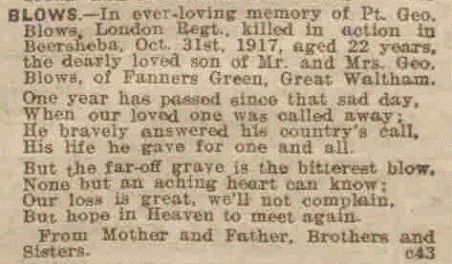
George
BLOWS
1895 - 1917

Early Life
GEORGE BLOWS was born on the 27 May 1895 in Great Waltham, the son of George William and Eliza Elizabeth Blows (née Poulter).
His parents were married on the 25 September 1885 in the Parish Church in Great Waltham. Eliza was residing in Great Waltham and was employed as a servant, whilst George was a Labourer who was born in Chignal Smealy, but was living in Writtle at the time of his marriage.

MARRIAGE OF GEORGE BLOWS & ELIZA ELIZABETH POULTER
PARISH CHURCH GREAT WALTHAM
George was the fifth child of ten children. His elder siblings were William Samuel b.1886 (died 1888), Ada Florence
b.1888, Ellen Mary b.1890, Lily b.1892. His younger siblings were May Louisa b.1899, Walter James b.1901, twins, Arthur and John b.12 March 1904, (John died and was buried on 24 March1904) and Dorothy Eliza b.1907.

BAPTISM GEORGE BLOWS
George was baptised privately on the 27 May 1895 and received into the Parish Church at Great Waltham on the 2 June by the Vicar, Revd. H E Hulton.
(When a new-born infant was sickly and thought unlikely to survive, its fate in Heaven required it to be baptised urgently, so any available clergyman was persuaded to attend the family home and baptise the child there, and hence the baptism was done "privately" and recorded as such. If the child recovered it would often be baptised publicly later and you may sometimes find "brought to church" with a date, added beside the original entry, or as a separate entry in the register.)
In 1901 the Census shows the family were living at Fanners Green, Great Waltham. His father was working as an ordinary Agricultural Labourer and the family were still living in Fanners Green in 1911, when George was now a Stockman on a farm aged 15 years.
Military Life
George enlisted into the 5th Essex Regiment, Number 2846, (possibly under the Derby Scheme in 1915-16) but then transferred to the 2nd/24th (County of London) Battalion (The Queen’s) as a private, Regimental No. 720086 around the beginning of 1917. The Battalion was formed in Lambeth in May 1914 from the same Regiment as the 1st/24th, but basically the Territorial Force doubled in size and this effectively meant that each unit formed a duplicate. The London Battalion therefore became two battalions instead of one.
The 2nd /24th moved to St Albans in March 1915, when the 1st /24th left for France. The unit then went to Braintree in May 1915. The Battalion landed at Le Havre, France in June 1916, but then transferred to Salonika in November 1916 and finally Egypt on the 2nd July 1917.
The Regiment underwent a major rearrangement with the appointment of General Edmund Allenby and was merged into the 60th (2/2nd London) Division. The XX Corps was then formed from four Infantry Divisions which included the 60th (2/2nd London) Division.
The XX Corps first saw action in the Beersheba phase of the Third Battle of Gaza on the 31st October 1917. The main assault commenced at 12.15 pm. The 60th and 74th Divisions captured Turkish outposts west of the town but were not involved in the final assault. Following Beersheba on 6 November, the corps made a frontal assault against the Turkish fortifications in the vicinity of Sheria where the 10th, 60th and 74th Divisions succeeded in breaking through. The 10th Division captured the Hareira Redoubt on 7 November and the 60th Division advanced on Huj in support of the Australian Mounted Division's effort to cut off the retreating Turkish army.
The casualties on that day included 136 killed, 1010 wounded and 5 missing. (Most casualties were from the shrapnel from the Ottoman artillery and machine guns during the preliminary bombardment.)
Wikipedia Battle of Beersheba 1917
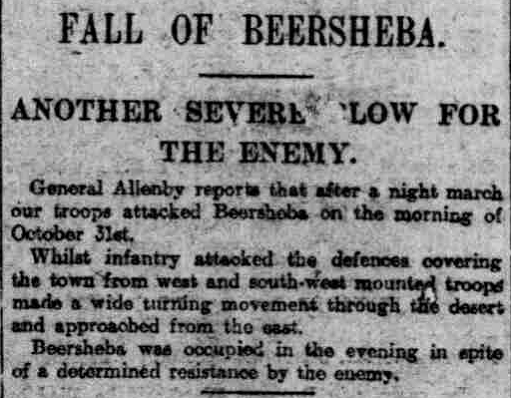
NOTTINGHAM POST 1 NOVEMBER 1917
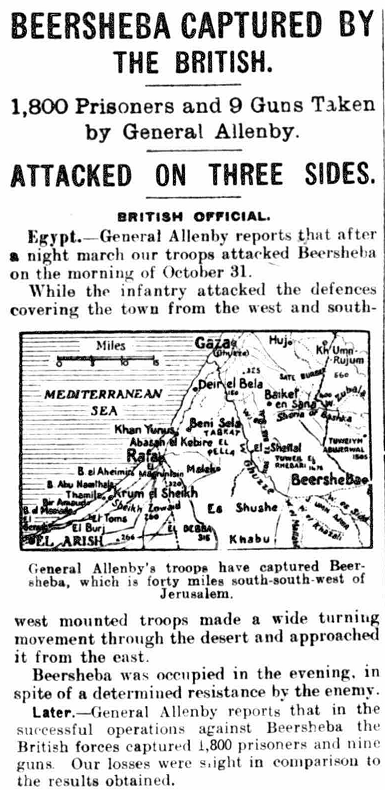

Death and Memorial
George was killed in action on the first day of the Battle of Beersheba on the 31 October 1917 aged 22 years.
He was buried in the Beersheba War Cemetery in Israel and Palestine, Grave No. J27.
His headstone is inscribed ‘Jesus Mercy’ chosen by his mother.
The Cemetery is situated on the south-west of Beersheba town. It was made immediately on the fall of the town, remaining in use until July 1918, by which time 139 burials had been made It was greatly increased after the Armistice when burials were brought in from a number of scattered sites and small burial grounds. The cemetery now contains 1,241 Commonwealth burials of the First World War, 67 of them unidentified.

George Blow's grave


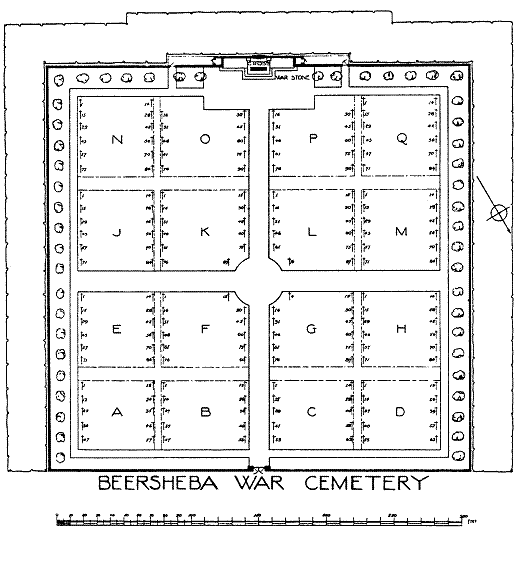
George is also remembered on the War Memorial in Great Waltham.
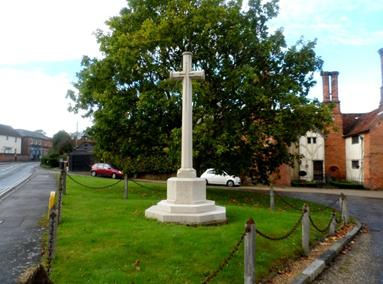
UK, Army Registers of Soldiers' Effects, 1901-1929
Eliza, his mother was his next of kin and on the she received the total sum of £13.18s.8d with a further War Gratuity payment on the 15 November 1919 of £14.
George was awarded the Victory Medal and the British Medal.



MEDAL CARD GEORGE BLOWS
